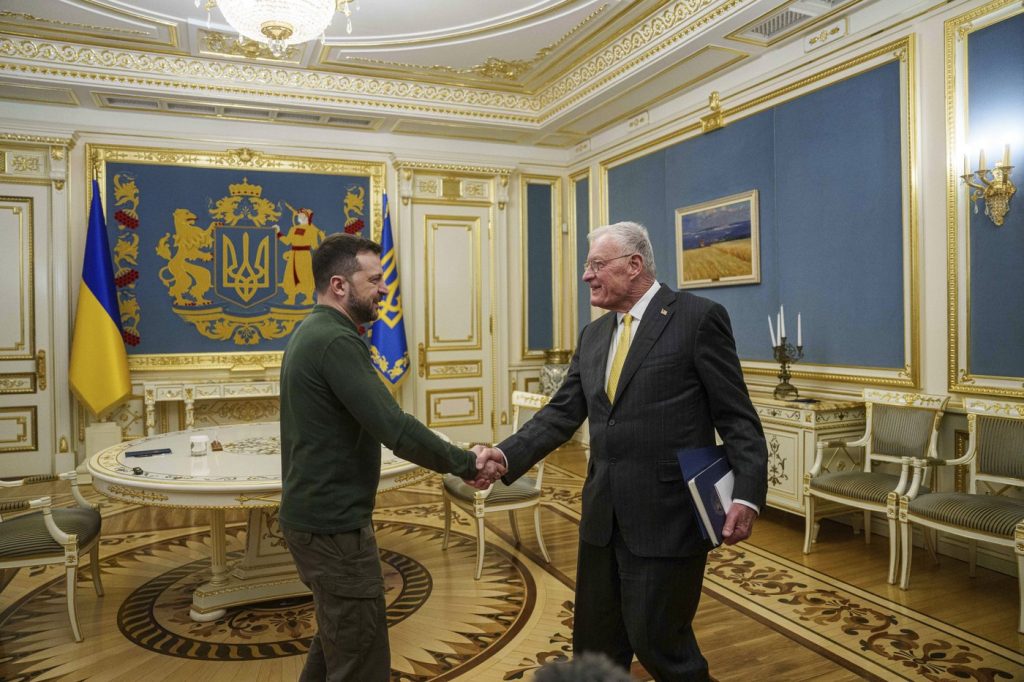The White House and Ukraine have reportedly made significant strides toward finalizing an agreement that would grant the United States access to Ukraine's rare earth minerals, thus strengthening the long-term relations between Kyiv and Washington. This progress follows a tense exchange of rhetoric between President Donald Trump and Ukrainian President Volodymyr Zelenskyy regarding the proposed deal.
During the week, Zelenskyy expressed reservations about signing a deal pushed by U.S. Treasury Secretary Scott Bessent during his visit to Kyiv. The Ukrainian leader reiterated his concerns about the absence of security guarantees in the American proposal during a subsequent meeting with Vice President JD Vance in Munich.
In the midst of these developments, Trump renewed his critique of Zelenskyy's management of the ongoing three-year conflict with Russia, accusing Ukraine of squandering Bessent's resources. However, substantial progress was reportedly made during a three-day visit to Ukraine by Keith Kellogg, a retired Lt. Gen. and Trump's special envoy to Ukraine and Russia, according to an anonymous source familiar with the negotiations.
Meetings between Kellogg, Zelenskyy, and other high-ranking Ukrainian officials such as Foreign Minister Andrii Sybiha and Rada Speaker Ruslan Stefanchuk took center stage during this diplomatic engagement. As Kellogg returned to Washington, Zelenskyy conveyed a notably optimistic outlook in his nightly address, indicating that the two nations were still collaborating on drafting an agreement.
Zelenskyy stated, "Today, Ukrainian and U.S. teams are working on a draft agreement between our governments. This agreement can add value to our relations — what matters most is getting the details right to ensure it truly works." Trump had previously expressed interest in such a deal, which was initially proposed by Zelenskyy last fall to strengthen Ukraine's negotiating stance against Moscow.
Rare earth elements, a collection of 17 elements crucial to many consumer technologies—including cellphones and electric vehicles—feature prominently in this prospective agreement. Trump’s national security adviser, Mike Waltz, voiced confidence that Zelenskyy would eventually approve the deal permitting U.S. access to these minerals. At the Conservative Political Action Conference, Waltz stated, “Here’s the bottom line. President Zelenskyy is going to sign that deal.”
It remains uncertain whether any security guarantees have been offered by the White House in this emerging deal. Earlier proposals had suggested that the U.S. could use access to Ukraine's minerals as compensation for previously provided support and as a form of payment for future aid. The National Security Council at the White House did not immediately respond to inquiries regarding the reported progress.
Trump's aides, including Secretary of State Marco Rubio and special envoy Steve Witkoff, have also engaged with senior advisers to Russian President Vladimir Putin in Saudi Arabia, discussing preliminary talks aimed at resolving the conflict in Ukraine. However, Trump faced criticism from Zelenskyy for not including Ukraine and other European allies in these discussions.
In a radio interview, Trump dismissed the significance of Zelenskyy's presence in the meetings, asserting that the Ukrainian president was negotiating "with no cards." Trump also warned Zelenskyy to "move fast" to negotiate peace with Russia or risk losing his country. He suggested that Putin might be open to a deal, but emphasized that the Russian leader had multiple options at his disposal.
The tension created by Trump's statements has sparked backlash not only from Democrats but also from some Republicans in Congress, where support for Ukraine's defense against Russian aggression has traditionally been bipartisan.











